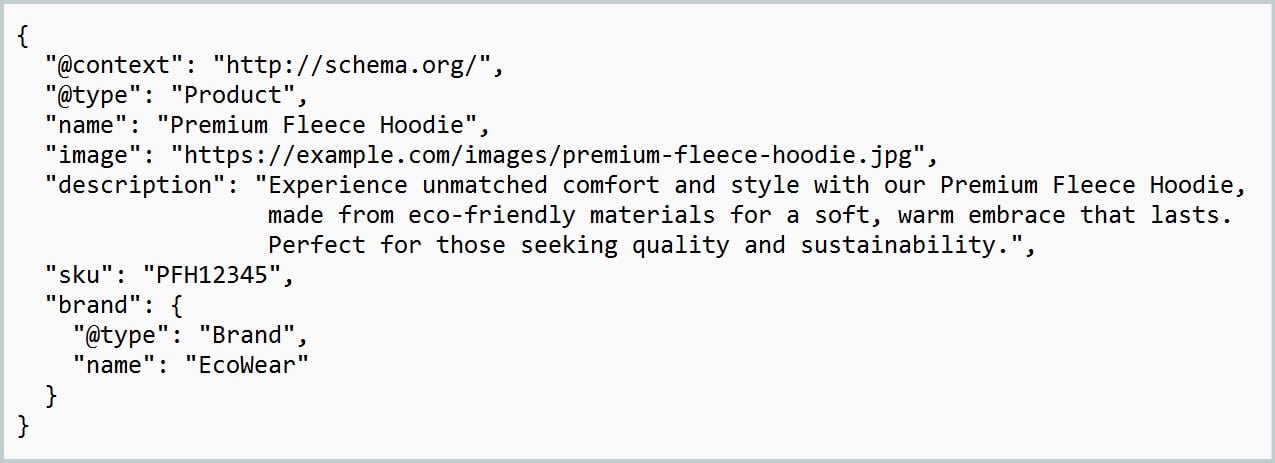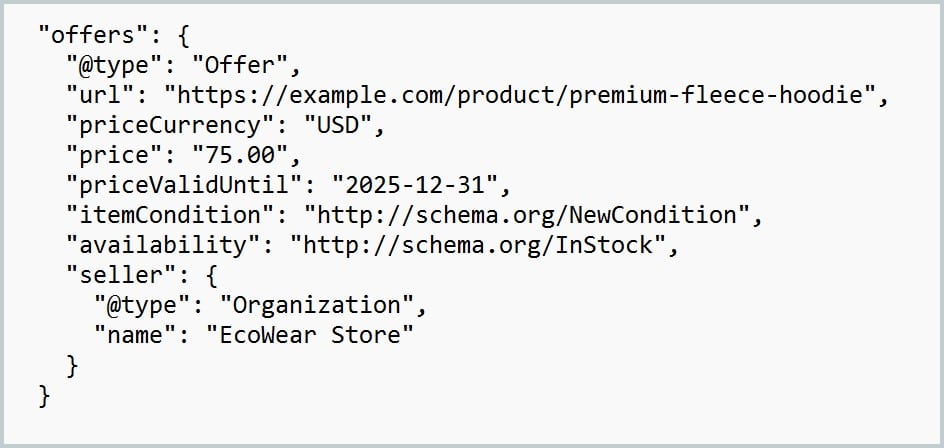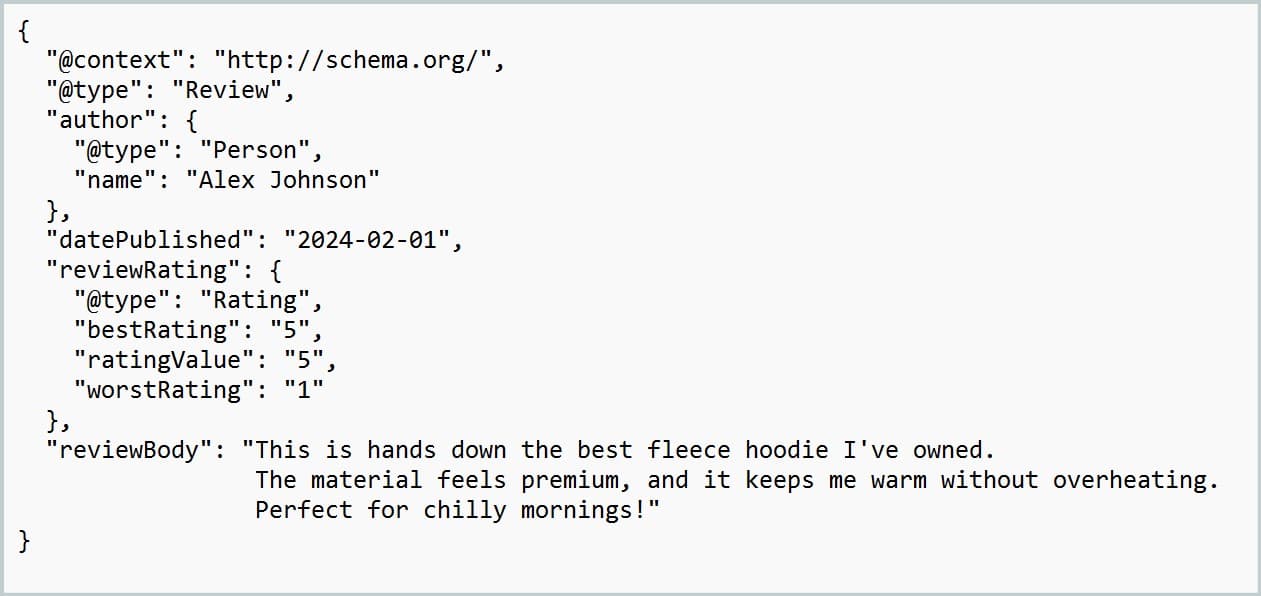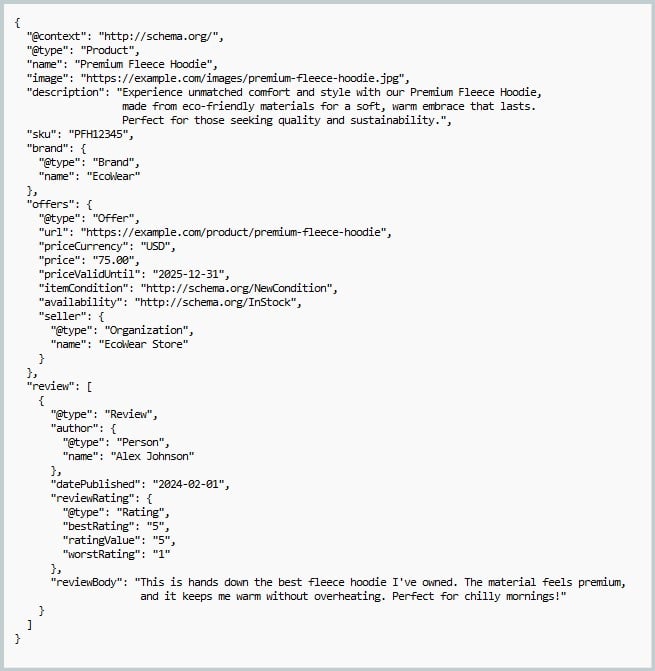Schema markup is a powerful SEO tool transforming product visibility in online searches. This code, or semantic vocabulary, added to your website helps search engines display more informative results, enhancing the online presence of your eCommerce products. Schematic markup ensures your products stand out on search engine results pages (SERPs) by detailing price, availability, and reviews.
Key Benefits of Schema Markup for eCommerce
Enhanced Visibility: Products featured with rich snippets in SERPs catch the eye, potentially boosting click-through rates.
SEO Optimization: Search engines efficiently index sites with structured data, improving your site’s ranking.
Informed Purchasing Decisions: Detailed product information in search results aids customers in making quick, informed choices.
Showcasing Product Details in SERPs with Schema Markup
Leveraging schema markup can dramatically enhance how your products are presented in search results, as exemplified by Iron & Steel Threads. Take their product, “The Legs Feed The Wolf,” for instance. By integrating schema markup, Iron & Steel Threads ensures that crucial details like price and availability are directly visible under the SERP listing.

This makes the listing more informative and engaging for potential buyers and streamlines the shopping experience by providing essential information upfront. Such rich snippets draw users’ attention and can significantly influence click-through rates, showcasing the tangible benefits of utilizing schema markup in eCommerce.
Schema Markup Resources
Leveraging schema markup begins with utilizing tools like Google’s Structured Data Markup Helper, which simplifies the process of generating the necessary code for your product pages.
Platforms like schema.org offer a comprehensive vocabulary for various product types, while eCommerce platforms might provide specific plugins, making integration seamless.
Understanding Schema Types
Diving into schema types like product, offer, and review schemas can further refine your site’s SEO and user experience:
Product Schema: Central to eCommerce SEO, this schema type presents product details such as name, description, and SKU. It enriches product pages, making them more informative for both users and search engines.
Here’s an example of product schema:

Offer Schema: Integrated within the Product schema, it details commercial aspects like price, availability, and seller, providing clear purchase information.
Here’s an example of offer schema:

Review Schema: Incorporating customer reviews, this schema offers valuable insights from previous buyers, enhancing trust and credibility.
Here’s an example of review schema:

Integrating these schemas results in the following comprehensive structure:

Schema Implementation Methods
Streamlined Integration with eCommerce Plugins
Implementing schema markup on an eCommerce site can be approached in various ways, catering to different levels of technical expertise and platform capabilities. Plugins or extensions offer a straightforward solution for those using popular eCommerce platforms, such as Shopify, WooCommerce (WordPress eCommerce plugin), or Magento.
These tools are designed to integrate seamlessly, automatically generating and inserting the necessary schema markup based on your product data. For example, WooCommerce’s “Yoast SEO” plugin optimizes your site for search engines and includes features for easily adding schema markup to your product pages.
Custom Schema Implementation Using Google Tag Manager
Google Tag Manager (GTM) provides a flexible alternative for more customized or complex implementations. GTM allows you to inject custom schema scripts into your web pages without directly editing the site’s source code. This method involves creating a custom HTML tag within GTM, where you can paste your schema markup and specify the triggering rules to ensure the schema is added to the appropriate pages.
This approach is particularly useful for businesses with unique product offerings or custom-built eCommerce platforms, as it allows for tailored schema markup that accurately reflects the nuances of your products and services.
Both methods, whether utilizing platform-specific plugins or leveraging the versatility of Google Tag Manager, offer effective pathways to integrate schema markup, enhancing your eCommerce site’s visibility and user experience. The choice between these approaches depends on your specific needs, technical resources, and the level of customization required for your schema implementation.
Google’s Best Practices
Adhering to Google’s guidelines for schema markup is essential. Ensure your data is accurate, up-to-date, and free from manipulative tactics to avoid penalties and maximize the benefits of your SEO efforts.
In Summary
Schema markup is an indispensable component of modern SEO strategies for eCommerce. It enhances product visibility in search results and is pivotal in optimizing your site for search engines and improving the customer decision-making process.
With the right tools and a clear understanding of various schema types, you can effectively implement this strategy and set your eCommerce site apart in a competitive digital marketplace.
FAQs
What is Schema Markup?
It’s a code added to your website that helps search engines display more informative results, enhancing the visibility of your products in SERPs.
How does schema benefit eCommerce sites?
It boosts visibility, optimizes SEO, and enriches the customer experience by providing detailed product information in search results.
Can schema improve site ranking?
While not a direct ranking factor, it helps search engines understand your site better, potentially improving your ranking.
Is schema implementation complex?
With tools like Google’s Structured Data Markup Helper and various plugins, adding schema markup is accessible for most eCommerce sites.
- Growing Your Rockford IL Business with Modern Website Design - April 15, 2025
- Content Pruning: The Key to Better SEO and Higher Rankings - March 25, 2025
- Internal Linking SEO: How to Boost Your Rankings and User Experience - February 18, 2025
